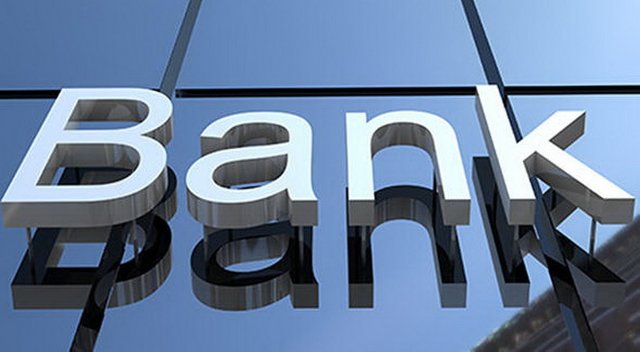Blockchain Technology for Banks: Trends and Perspectives

The latest technology trends are hard to neglect and fresh announcements from multiple finance institutions around the globe tell that they already began to implement top Blockchain technology for banks. Such approach due to the Blockchain’s abilities allows them to significantly transform their businesses to a new level. So, let's see what benefits the banking industry will face by embracing this new digital tool. I'm here to talk about the Blockchain technology for banks, its trends and future perspectives.
Top 5 Blockchain Technologies for Banks
At first, all that Bitcoin hype and Blockchain technology for banks were met with great skepticism by financial organizations. But these days, things have changed on a global scale – industry reports show that Blockchain companies raised more than $240 million of venture capital in the first six months of 2017, and much of the money came from banks.
The most advanced cryptographic algorithms enable users to edit only the Blockchain’s parts that they “own” and access them with their private keys that are required to add information to the file. Along with this, shared Blockchain databases let multiple parties simultaneously access a constantly updated digital ledger that cannot be tampered with or altered. And everyone’s copy of such shared Blockchain will be kept in sync. However, it’s not just that. The most attractive advantages of Blockchain technology for banks are the potential cost reduce and labor savings that could make a global financial market so appealing.
All that billions of transaction that are being served every day and enormous amounts of money being processed by financial systems around the world still heavily depend on a paper. This causes great expenses and delays, not to mention the easy way for criminals and fraud artists to operate on it. While the Blockchain will allow financial institutions to stop using the usual paper processing and ensure the highest level of data safety. And the World Economic Forum report already predicted in 2015 that by 2025 10% of GDP will be stored on blockchains due to their economic perspectives.

So, the experts hope that financial industry will truly understand the perks and embrace the closed loop Blockchain technology for banks. While I’ll try to explain the current top 5 Blockchain trends for money processing field.
1. Identity and Authorization – Safety First
Every bank worker will say that customers’ and counterparties verification is a core and vital component of this business. Mess with identities and any lender will quickly lose the people’s trust to guard their money. The banks are always responsible for verifying and ensuring that customers aren’t criminals or terrorists. If things go wrong the bank will get fines. So, it’s been a couple of years already that banks are trying to implement a shared digital system that will record users' identities and constantly update them. They didn’t find the right formula though, but the new era of crypto revolution gifted them with a tool that can potentially overcome the difficult demands and liability problem.
Many investors believe that Blockchain technology for banks will offer a solution using its cryptographic mechanisms to protect and share constantly updated records with many parties in a matter of seconds. The massive amount of data could be moved with the help of ‘know-your-customer’ (KYC) and anti-money laundering algorithms. Worldwide known startups began working on creating the blockchains for customer identification – R3’s Corda, Cambridge Blockchain, Credits and Blockstack, etc.
2. Payments Processing
At least for two years, central banks across the globe are experimenting with a great complexity of a new payments infrastructure. Parts of such payments would be moved on to the blockchains and could be also used to launch new personal cryptocurrencies. This approach partly represents an attempt to respond to the challenge posed to their control of monetary policy by independent and widely accepted cryptocurrencies like Bitcoin or Ethereum. So, one can say that central bank owners are getting ready to skim the cream off the Blockchain technology for banks and payments system.
As for the commercial banks, they aren’t waiting for anyone and take the lead with their own projects. For example, Union Bank of Switzerland developed their "utility settlement coin” with the purpose to create their own cryptocurrency so it would be used in financial markets. The principle of work is really promising – they would issue the tokens that’d be convertible into cash on deposits at central banks.
Cross-border payments are represented by the bank-owned messaging system Swift that handles trillions of dollars transfers and also experiments with Blockchain technology for banks in order to transform the payments system. However, on the other side they have a long-standing rivalry with Ripple – a rapidly growing firm that uses the Blockchain technology on an intense level, so to speak. And the winner won’t be defined yet for quite a time.

3. That Deal with Syndicated Loans…
For those who don’t know, a US company that desires to get a syndicated loan will have to wait at least for nineteen days while the transaction would be settled by the banks. And when some changes are made to the loan, a communication process is still done by mail and fax. So, this banking area hasn't seen that many innovations in years.
However, the times are changing! One of the 19 trailblazing financial institutions, Swiss Credit Suisse Group formed a consortium that works hand-in-hand with R3 and Synaps company to start issuing syndicated loans on the blockchains. This would provide an easy way to manage the whole lifecycle of loans and fastest transactions processing. But there is an obstacle to overcome – the developers must find a way to make separate blockchains talk to each other in order to quickly reflect all changes that are made to a loan's ownership across all systems. So, the Blockchain technology for banks alone won’t be a panacea for all the inefficiencies in the syndicated loan market but it’ll start a revolution in this field.
4. A case of Trade Finance
This area of banking is also still mostly based on paper, which is a slow and expensive path. All the bills or credit document are sent by fax and post across the globe and bankers are crying out for digital modernization already. Experts believe that some top Blockchain technology for banks would be an obvious solution. The need of fast communication process, numerous parties involved and they require a distant access to the same data...
So, the Blockchain could potentially make an important step towards great changes in this field. For example, it can exclude from an equation the paper documentation and fax machines, physical stamps and signs. But here is a thing, digitizing just trade finance isn’t a way out, the banks would have to digitize the trade itself. They must include the shipping companies, freight providers, various agent and ports, along with customs and insurers.
5. Clearing and Settlement Operations
This industry is not that famous but holds the door for a disruptive digital ledger wide open. Here, the Blockchain technology for banks can seriously change the infrastructure of clearing and settlement operations. This complicated and tangled system stores information on loans and securities. And its handling costs banks billions of dollars as Accenture’s report says. They estimated that the investment banks could save approximately $10 billion by implementing the Blockchain for their clearing and settlement processing.
The technology can greatly improve the efficiency in this banking field, impacting such clearing houses as Depository Trust & Clearing Corporation (that already cooperates with R3, IBM and Axoni on Blockchain projects), Australian Stock Exchange and Deutsche Börse. As for the trailblazers in this industry, the Australian Securities Exchange embraced the strategy that has a goal of moving their post-trade clearing and settlement on to the Blockchain. And the Digital Asset Holdings, led by Blythe Masters herself, curates the project. So, it’s not a joke and the perspectives are very appealing.

How Top Blockchain Technology for Banks is Being Used In Banking Sector
It’s hard to even wrap our minds around a wide range of possibilities for Blockchain in financial and banking field. If the finance world will truly understand what exactly is the Blockchain technology for banks and which benefits are really possible, it could potentially disrupt the whole industry. But some of the banks have successfully transformed the finance processing with Blockchain implementation. So, here is a couple of most-known pain points that Blockchain technology cures.
The key points of internal bank problems:
- Process automation
- Digitalization and Decentralization of banking information
- Intra-bank settlements
- Internal transaction messaging
- Product data structure
- Reconciliation & Synchronization
- Safer data storing
- Auditing
In terms of bank-client relationships:
- Digitalization instead of Papers
- Total operational simplification
- Faster transaction handling
- Customer data management
- Fraud reduction
- KYC and customer due diligence regulations
- Smart Contracts
To Recap
We all know that the most important benefits of Blockchain technology for banks would be decentralization, transparency and provenance potential. Personally, I also believe in its capability to exclude frequent data theft, fraud and misuse of high-value assets or intellectual properties. However, before falling for the extraordinary opportunities of Blockchain technology for banks, the financial organizations must understand its concept on the deepest level and accept the hurdles that they would have to overcome.
The whole business model should be redefined and banks would have to collaborate with professional Blockchain developers in order to transform the financial ecosystem. The process will be difficult to accept and there will be many huge efforts in order to pursue the world to accept this new system. Also, the financial blockchains would have to meet the requirements and regulations of modern privacy laws when it comes to the bank’s and client’s data safety. But it all would be worth it when the benefits would become visible for bankers.